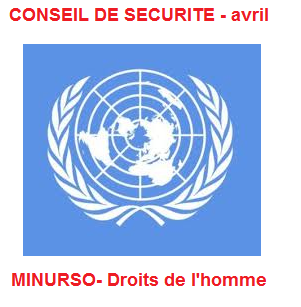Draft resolution 25/04/2014
TheSecurity Council , Recalling and reaffirming all its previous resolutions on WesternSahara, Reaffirming its strong support for the efforts of the Secretary-General and hisPersonal Envoy to implement resolutions 1754 (2007), 1783 (2007),1813 (2008), 1871 (2009), 1920 (2010), 1979 (2011), 2044 (2012), and2099 (2013), Reaffirming its commitment to assist the parties to achieve a just, lasting, andmutually acceptable political solution, which will provide for theself-determination of the people of Western Sahara in the context ofarrangements consistent with the principles and purposes of theCharter of the United Nations, and noting the role andresponsibilities of the parties in this respect, Reiterating its call upon the parties and the neighbouring states to cooperatemore fully with the United Nations and with each other and tostrengthen their involvement to end the current impasse and toachieve progress towards a political solution, Recognizing that achieving a p





